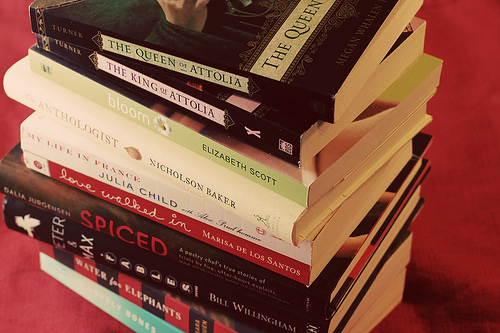
Image credit: goXunoReviews
Of course everyone has their personal preference, and we could argue about the merits of each all day. The question is: which is better for knowledge retention, learning, and comprehension. The answers may surprise you.
Too Early to Tell?
The truth of the matter is that there have been few studies comparing print versus digital reading, and most of the studies that have been completed were done in the 1990s when digital education was in its infancy. This could mean that as we adapt to these new learning frontiers, we could become better at learning from them. So we really do not know the full answer to this question of the merits of digital reading at this point. What we can do is review the results and conclusions up to this point.
Down with Digital?
The arguments against digital reading revolve around the increased interaction both available and required. Digital reading involves manipulation of the interface to navigate the text, and allows for forays into other texts or content with the click of the mouse. Pictures and other multimedia are widely available and compete with the text for the reader’s attention. Some argue that the presence of other media hinders the reader’s ability to use his or her imagination, which limits the connection with the text. Beyond the extra manipulation and interaction required when reading digital media, it is also harder to manipulate for the purpose of annotation when compared to printed text. Printed media is easy to mark up, highlight, and add notes to, and while digital media is improving in this area, it still lags behind. One of the few studies on the subject found that participants read 10 to 30 percent slower when reading online.
The evidence against digital reading seems to be piling up. But is this the whole story? What about the benefits of digital reading? Some argue that online reading ability is a matter of experience. Younger people who grow up reading online become more proficient at it when compared to older people who prefer physical media. One study compared student’s performance on state reading tests as well as an internet reading test. About a third of the students who scored below average on the traditional reading tests did well on the internet test.

image credit: Emily Carlin
Better Than Nothing?
While we do not yet have a complete picture of the merits of digital or online reading, what we do know is that reading in general is very important. One federal statistic showed that students who read for pleasure at least once a day scored significantly higher on reading tests that those who do not. And a survey of business leaders found that reading comprehension was seen as very important by almost 90 percent of those surveyed. Another study found that the only type of reading that predicted better grades was novel reading.
So while the educational benefits of reading online are not looking favorable to traditional print reading at this point, the situation is ever evolving, and if it comes to a choice between digital reading or nothing, digital reading is certainly the better choice as was evidenced by a study that showed a correlation between providing internet access to low-income student and improved reading test scores.
Guest contributor +Brian Burton loves reading children’s books and running the blog at childrensbookstore.com. He often writes on the topics of children’s books and parenting.
I prefer to hold a book in my hands, however I do have a Kindle and am loving it. I love the availability of books instantly. I think though what you’re talking about is reading material online – like on your computer, vs. say a Kindle of Nook, as I would argue reading from one of those is probably about equal. I think as students get into high school and post secondary having a table for your text book or required reading makes it easier and hopefully more affordable (maybe not, no second hand books in e-format). I think this is the way of things now and I don’t see it going backwards soon.
I think that reading textbooks digitally might be very difficult, and reading them on a laptop instead of a digital reader might be easier. I do think it’s too early to tell how effective e books will be, or how cost effective, so I am going to wait a while before buying them for my school library. Whenever anyone asks why, I just pull out some laser disks and tell them that these are the greatest new technology— only they never flew!
I think that they both have their place. Young people these days are getting used to being able to download media of all sorts on demand and will probably prefer an e-reader for that reason. Lots of people like the feel of a real book though.